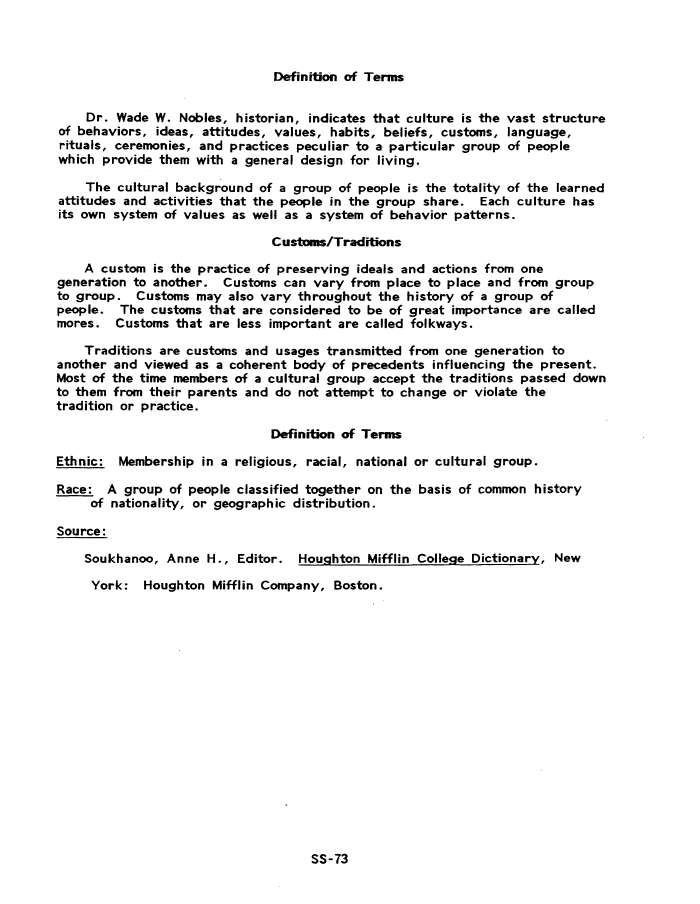 |
||||
|
TASK FORCE TO STUDY THE HISTORY AND LEGACY OF SLAVERY IN MARYLAND (Final Report) 1999/12/31 MdHR 991422 MdHR 991422, Image No: 223 Print image (42K) |
 |
||||
|
TASK FORCE TO STUDY THE HISTORY AND LEGACY OF SLAVERY IN MARYLAND (Final Report) 1999/12/31 MdHR 991422 MdHR 991422, Image No: 223 Print image (42K) |
| Definition of Terms Dr. Wade W. Nobles, historian, indicates that culture is the vast structure of behaviors, ideas, attitudes, values, habits, beliefs, customs, language, rituals, ceremonies, and practices peculiar to a particular group of people which provide them with a general design for living. The cultural background of a group of people is the totality of the learned attitudes and activities that the people in the group share. Each culture has its own system of values as well as a system of behavior patterns. Customs/Traditions A custom is the practice of preserving ideals and actions from one generation to another. Customs can vary from place to place and from group to group. Customs may also vary throughout the history of a group of people. The customs that are considered to be of great importance are called mores. Customs that are less important are called folkways. Traditions are customs and usages transmitted from one generation to another and viewed as a coherent body of precedents influencing the present. Most of the time members of a cultural group accept the traditions passed down to them from their parents and do not attempt to change or violate the tradition or practice. Definition of Terms Ethnic: Membership in a religious, racial, national or cultural group. Race: A group of people classified together on the basis of common history of nationality, or geographic distribution. Source: Soukhanoo, Anne H., Editor. Houghton Mifflin College Dictionary, New York: Houghton Mifflin Company, Boston. SS-73 |